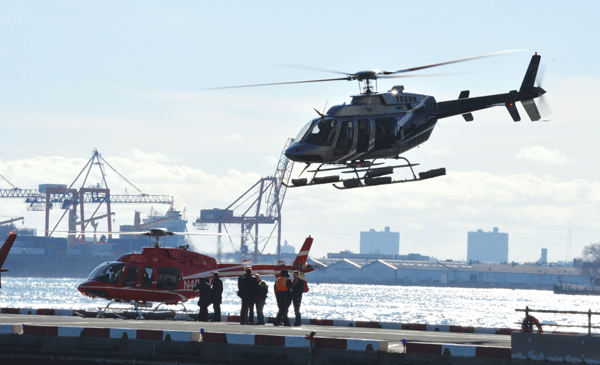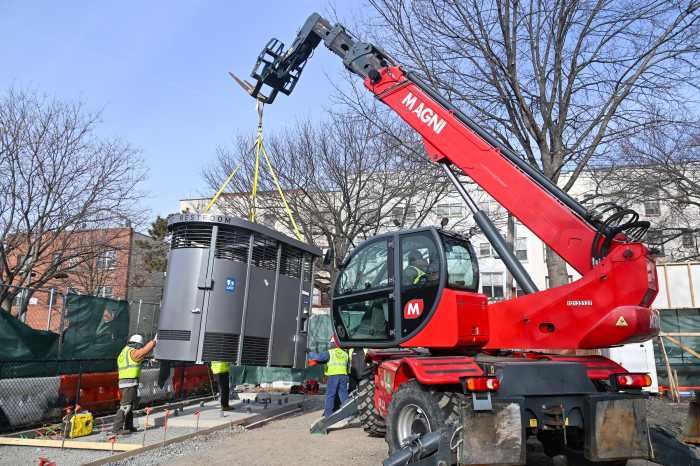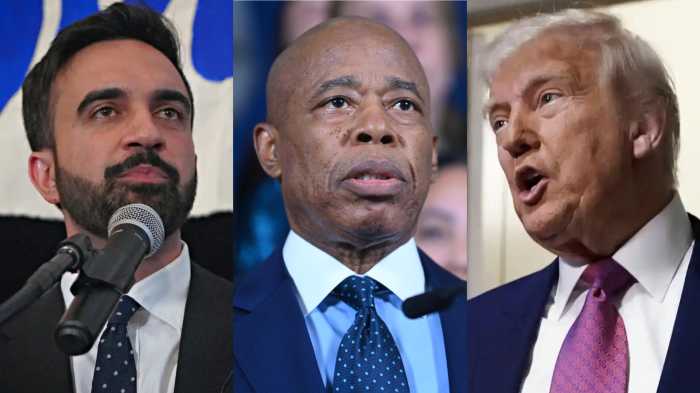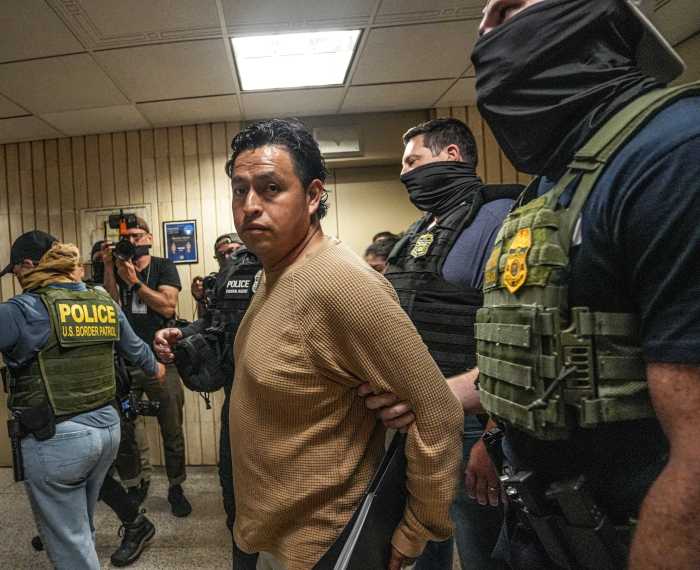
BY YANNIC RACK | The future of the city’s helicopter tour industry is up in the air after frustrated residents and elected officials sounded off about the noisy birds at City Hall last week.
“Anyone who lives, works, goes to school, or even visits Downtown has heard the deafening ‘chop-chop’ of the helicopters,” said Lower Manhattan Councilmember Margaret Chin ahead of a Nov. 12 Council hearing on legislation to curb the copters. “Enough is enough,” she said.
Chin and two colleagues, Carlos Menchaca from Brooklyn and Helen Rosenthal from the Upper West Side, have introduced a set of bills that would effectively boot the helicopter sightseeing industry from New York City.
The lawmakers say the legislation is overdue after years of complaints about incessant noise and noxious fumes caused by the choppers along their route from the tip of Lower Manhattan up the Hudson River to Washington Heights.
But helicopter-tour operators argue that the economic benefits to the city outweigh the suffering of residents near the Downtown Manhattan Heliport.
Before the hearing, the copter critics and helicopter huggers held dueling rallies on the steps of City Hall.
Locals complained that the cacophonic copters make normal life almost impossible Downtown.
“Within minutes of getting to the playground, it’s helicopters buzzing overhead,” said Community Board Member Patrick Kennell, who lives on John St. in the Financial District with his two kids, ages 5 and 8. “It’s very disturbing and very disruptive to them. They’re not able to go out to the park and enjoy themselves.”
Tour company workers said the whirlybird whiners should just shut up or get out.
“These people need to move away themselves,” said Luz Herrera, a customer service rep for Liberty Helicopters, the city’s largest air-tour operator. “They want to live in the city with the commodities of the city — if you live here, you have to pay the price.”
Sam Goldstein, deputy director of the Helicopter Tourism & Jobs Council, was more diplomatic.
“We are here because our livelihoods are under assault,” he said. “Don’t destroy our families and don’t destroy our jobs.”
Although residents and electeds from as far away as Queens, Brooklyn and even New Jersey, showed up to blast the boisterous birds, the epicenter of the problem is in Lower Manhattan.
The Downtown Manhattan Heliport at Pier 6 near The Battery is the only heliport in the city that allows sightseeing helicopters to land and take off.
Tour flights thunder in an out of the Pier 6 heliport 28 times every hour during the day, seven days a week, according to figures from the Helicopter Tourism & Jobs Council, amounting to more than 100,000 take-offs and landings each year.
“This heliport continues to plague our community with noise and threats to air quality and safety,” said Catherine McVay Hughes, chairwoman of Community Board 1, which has vehemently opposed the tours for years.
“It’s truly a constant onslaught of noise,” said Craig Abruzzo, vice president of Stop the Chop, an advocacy group that has been working to clip the wings of the helicopter industry in Lower Manhattan.
Opponents of the air-tour industry had more politicians on their side at the hearing, but helicopter boosters boasted the support of the city’s top elected official — Mayor de Blasio — in the form of the city’s Economic Development Corporation.
The de Blasio administration opposes scrapping the choppers in part because the EDC gets $2.9 million in annual rent from the operator of the Downtown heliport, Saker Aviation, which hosts five air-tour companies.
“As currently drafted, the administration does not support either of the proposed legislation,” said EDC chief of staff James Katz during a sometimes tense exchange with the councilmembers.
Katz also cited a 2012 study by NYU’s Rudin Center for Transportation that said the industry benefits the city’s economy to the tune of $32 million from the around 200 jobs it provides, and nearly $10 million in additional tourism.
But elected officials said that the city shouldn’t put the interests of a single, narrow industry above those of its own citizens.
“The helicopter industry is a nuisance. We can not protect a single tourist experience … at the expense of the quality of life of thousands of New Yorkers,” said Congressman Jerrold Nadler.
At the hearing, Councilmember Brad Lander of Brooklyn questioned whether the EDC paid as much attention to citizens’ suffering as it does to economic metrics.
“It’s easy to measure jobs and money. I know it’s hard to measure misery,” said Lander, “but I suppose my question is, have you tried? Have you done something to evaluate just how miserable it is?”
Katz acknowledged that “it’s a great question, and well framed,” but said the EDC had not gone beyond looking at 311 calls, which he said showed only 162 helicopter-noise complaints in the past year.
But local pols said that figure is irrelevant because they get thousands of direct complaints from their fed-up constituents.
“Residents are so sick and tired of this that they have given up on calling 311 at all,” said Rosenthal.
The Council has not yet set the date for a vote on the legislation.





































